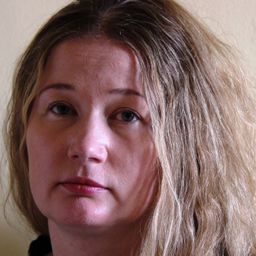Representing Intangible Heritage of Post-Industrial Waterfront Zones: Politics of Seeing, Ways of Noticing
Mon statut pour la session
We invite paper contributions that address multiple ways of understanding, recognizing, valuing, and preserving intangible heritage and challenges associated with these processes, including the politics of development, representation of multiple stakeholders and their interests, land ownership patterns and finance capital. The session will be contextualized in particular by linking to regeneration discourse of post-industrial waterfront zones—addressing questions of how to rethink post-industrial spaces where the previous logics of their use and occupation have broken down, attending to alternative urban imaginaries that are played out through language, ways of doing and working, as well as through their actual manifestations in the built environment.
The session aims to critically explore various emerging methodological approaches to regeneration, focusing on explorations and representations of intangible heritage and its value, utilizing multiple forms of engagement, through digital and other forms of mapping, oral history, archival research and testimony, interventions in public space, performance, lens-based art, and the use of social media platforms. The objective is to discuss and debate innovative ways of effective knowledge exchange across disciplinary boundaries of arts, humanities and social sciences in relation to arts-led regeneration strategies, concerning ways of valuing the intangible heritage and public engagement in the process, in particular in the context of waterfront heritage zones and port cities. We are additionally interested in questions as to how grand narratives of development and entrepreneurial cultures can influence the ways public space may be perceived, certain narratives remain invisible and inequalities perpetuated.
We invite papers that focus on case studies, theoretical contributions as well as artistic interventions that address multiple ways of understanding, representing and valuing intangible heritage of post-industrial waterfront zones. We invite papers and other forms of submissions from different parts of the world to share the experiences on ways of representing intangible heritage and its value in the context of waterfront heritage zones in past industrial areas and port cities—from different expert fields, including academics, architects, artists and urbanists who are seeking to challenge and extend understandings in this area. Intangible heritage brings important questions for contemporary cities. We also invite papers that address intangible cultural heritage as a tool for re-imagining urban environment or as a lens for re-envisioning the city’s futures, in particular concerning waterfront heritage zones.
Sous sessions
In the past century, the Island of Korčula largely based its production and economy on well-developed industries (shipbuilding, assemblage, fish and package processing, textile, paint, adhesives, varnishes, electronic devices, wineries, oil refineries…). They marked specific places on the island because of their production capacities, employed a large number of locals, and contributed to a successful local economy. In the 1990s, most industries were closed during the privatization process,...
This paper takes as a point of departure the ongoing debate surrounding the reconceptualization of heritage as a process, a shift that implies a multiplicity of narratives as well as pointing toward their possible concealment. Inevitably, heritage constructed as a process of cultural engagement or as action around communication and meaning-making, becomes a site of struggle and a potential medium of transformation. This paper addresses women’s visibility in constructed histories ...
The Port of Aarhus, in Denmark, is currently undergoing the most comprehensive redevelopment in the history of the city. Previous industrial zones and long–neglected areas give way to brand new residential quarters, huge cultural and educational institutions, and ambitious infrastructural attempts at “re–opening” the city toward the sea. At the same time, Aarhus prepares for celebrating its status as European Capital of Culture (ECoC) in 2017. Like previous ECoCs (Liverpool 2008 and Marsei...
In 1996 the Gdansk Shipyard—a place associated with 150 years of shipbuilding as well as the birthplace of the Solidarity movement—went bankrupt. Three years later more than a half of its area was bought by two American private investment funds with an aim to transform it into a new waterfront city centre of Gdansk. Cultural heritage was the key term used both by business and politics during the whole urban planning process. However, despite this fine rhetoric, the practice and the upcomin...
This paper examines various uses of representations of heritage as tools for transforming post-industrial waterfront areas of Scotland and Poland, which are or were in a state of social and physical decline over the last forty years. I will discuss various forms of representation of the heritage of the port of Leith (now part of Edinburgh), Scotland, why they were installed and for what motives, and their effect on both the community and people on the outside. I will also discuss the case ...
This paper will examine the remnants of the former Gdansk Shipyard (1884-2006), which can be understood as “elements of intangible heritage” due to their incompleteness, fragmentation and disappearing in half of their previous state as a large operating industrial site with its oldest buildings, structures and machinery going back to the 1870s. All surviving technofacts (per analogiam to artifacts) possess meaningful cultural values and among them the strongest techno-aesthetic one. Pan-ae...
This paper will take as its starting point ongoing heritage discourses related to participatory, performative, and co-curational practices within museums, specifically those used to challenge or nuance culturally dominant narratives and authorized discourses. It will examine developing discourses surrounding intangible cultural heritage (ICH), specifically related to its performative nature and under-theorization in urban areas. Using an ongoing collaboration between the Riverside Museum a...
This paper will analyze the potential of intangible cultural heritage for social cohesion on the local and regional level in Ukraine, especially, in post-conflict and post-industrial zones in waterfront areas historically inhabited by different cultures. The paper will consist of three parts: the general introduction of the issue, the examination of case studies, and the conclusions/recommendations. The introduction will expose the approach, based Ukrainian and international papers, that i...



